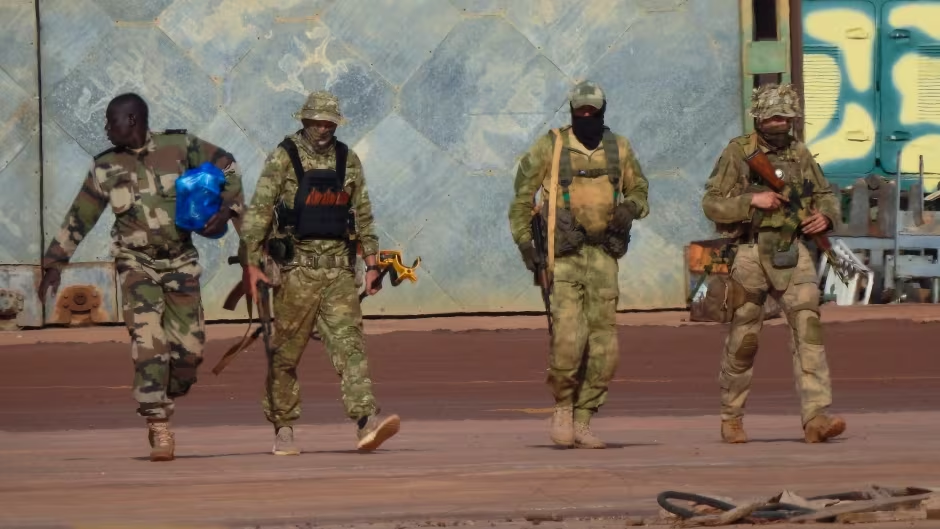The shadowy world of private military contractors and their ties to influential figures has once again come into focus with the recent developments surrounding Russia's Wagner Group and its association with businessman Yevgeny Prigozhin. As the global geopolitical landscape evolves, understanding the complexities and implications of such connections becomes crucial. In this article, we delve into the intriguing relationship between the Wagner Group and Prigozhin, shedding light on their activities, controversies, and the broader implications for Russia and international affairs.
The Wagner Group: An Enigmatic Private Military Company
The Wagner Group has gained notoriety as a private military company (PMC) allegedly linked to the Russian government. Known for its involvement in conflicts such as Syria, Ukraine, and Libya, the Wagner Group operates in a clandestine manner, with its true ownership and control shrouded in secrecy. The company has faced allegations of human rights abuses and destabilizing activities, fueling global concerns about the rise of non-state actors in armed conflicts.
Yevgeny Prigozhin: A Key Figure in the Wagner Group's Orbit
Yevgeny Prigozhin, often referred to as "Putin's Chef," is a Russian businessman with a diverse range of ventures and connections. He has been linked to the Wagner Group through his financial support and alleged control over the PMC's operations. Prigozhin, known for his close ties to the Kremlin, has faced international sanctions due to his alleged involvement in election meddling and other illicit activities. His association with the Wagner Group further deepens the intrigue surrounding both entities.
Controversies and International Ramifications
The activities of the Wagner Group and its connection to Prigozhin have sparked widespread controversies and geopolitical ramifications. The group's involvement in conflicts, often supporting Russian interests, has drawn international scrutiny and condemnation. Its operations have raised questions about the evolving landscape of warfare, the blurring lines between state and non-state actors, and the implications for global security. The connection to Prigozhin adds another layer of complexity, prompting investigations into the extent of his influence and potential motivations.
Implications for Russia's Foreign Policy and Power Projection
The association between the Wagner Group and Prigozhin sheds light on Russia's foreign policy goals and its strategy of utilizing private military contractors for power projection. The Wagner Group's alleged ties to the Russian government suggest a covert means of advancing Russian interests and extending influence beyond traditional state-controlled military forces. Understanding this dynamic is crucial in comprehending Russia's broader geopolitical objectives and the strategies employed to achieve them.
International Response and Policy Considerations
The Wagner Group and Prigozhin's activities have prompted responses from governments and international organizations. Concerns about human rights abuses, violations of international law, and the erosion of global stability have led to calls for increased transparency, accountability, and regulation in the private military contractor industry. Policymakers are grappling with the challenges posed by the Wagner Group and similar entities, seeking effective means to address their actions and mitigate the risks they pose.
Geopolitical Ramifications and Proxy Warfare:
The Wagner Group's activities and its connection to Prigozhin have broader geopolitical ramifications. Private military contractors like the Wagner Group often serve as proxies, enabling countries to pursue their interests indirectly and maintain plausible deniability. This practice allows states to exert influence and achieve strategic objectives without direct military involvement. The use of private military contractors blurs the lines between state-sponsored and non-state actors, posing challenges for international norms and the regulation of armed conflicts.
Resource Control and Economic Interests:
The association between the Wagner Group and Prigozhin also raises questions about resource control and economic interests. The PMC's involvement in conflict zones, particularly those rich in natural resources, suggests a potential motivation beyond ideological or strategic considerations. Controlling access to resources can have significant economic benefits for state and non-state actors alike. Understanding the nexus between the Wagner Group, Prigozhin, and resource interests is essential in comprehending the underlying drivers of their activities.
Legal and Ethical Concerns:
The Wagner Group's alleged human rights abuses and violations of international law raise serious legal and ethical concerns. Reports of indiscriminate violence, extrajudicial killings, and the recruitment of mercenaries highlight the need for accountability and adherence to international norms. The connection to Prigozhin, a prominent businessman with ties to the Kremlin, raises questions about the responsibility of individuals and entities supporting such activities. Addressing these legal and ethical concerns is vital to upholding human rights and ensuring accountability in conflict zones.
Impact on Regional Stability:
The Wagner Group's presence and activities have had a significant impact on regional stability in conflict zones. The involvement of private military contractors can prolong conflicts, exacerbate tensions, and impede diplomatic resolutions. The connection between the Wagner Group and Prigozhin further complicates regional dynamics, as it intertwines political, economic, and military interests. Analyzing the impact on regional stability is crucial for understanding the broader consequences of their actions and exploring avenues for peaceful resolution.
Implications for International Security Architecture:
The Wagner Group's existence and its association with influential figures like Prigozhin challenge the existing international security architecture. Traditional frameworks and mechanisms primarily focus on state actors, leaving non-state entities with significant capabilities and resources unaccounted for. The rise of private military contractors highlights the need to reassess and adapt international security frameworks to address the evolving nature of conflicts and the actors involved.
Conclusion:
The intriguing connection between Russia's Wagner Group and businessman Yevgeny Prigozhin has far-reaching implications for international affairs. Understanding the geopolitical ramifications, proxy warfare dynamics, legal and ethical concerns, resource control, and impact on regional stability is crucial in comprehending the complexities of contemporary conflicts. As the world grapples with these challenges, policymakers, researchers, and international organizations must closely monitor the activities and associations of private military contractors and influential individuals like Prigozhin to safeguard global security and promote peace and stability.










